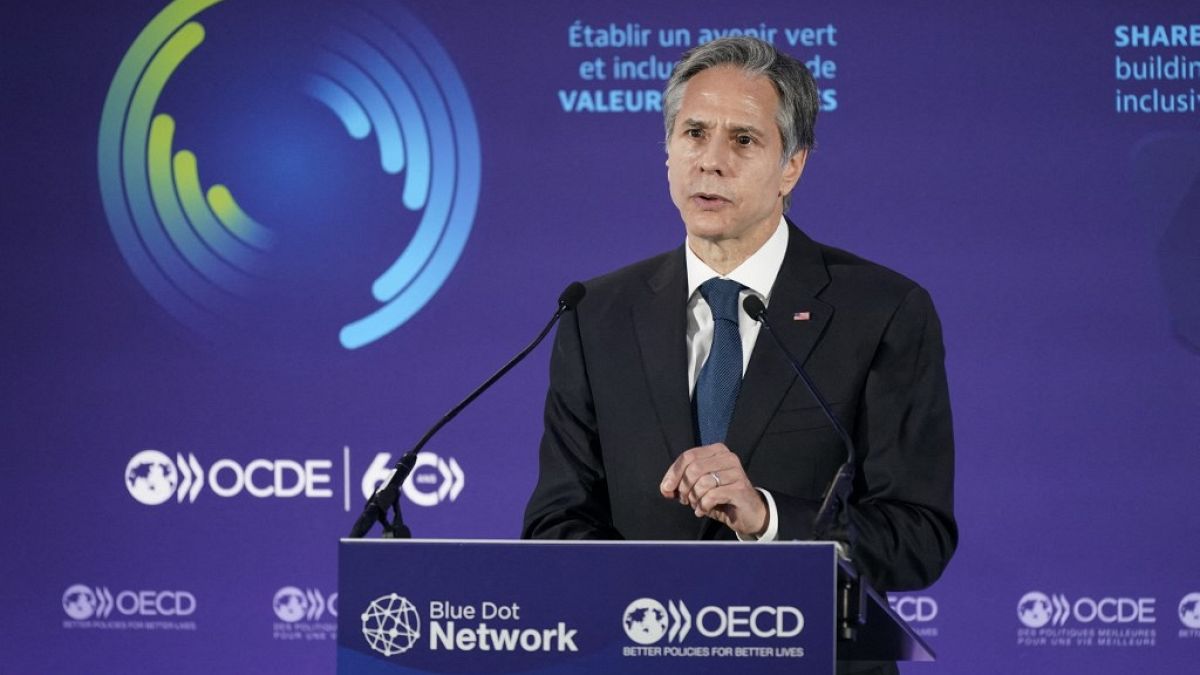US Secretary of State held talks at the Organization for Economic Cooperation and Development in Paris.
US Secretary of State Antony Blinken held a "tête-à-tête” with President Emmanuel Macron on Tuesday at the Organization for Economic Cooperation and Development in Paris.
Blinken hopes to establish official formal reconciliation between France and the United States after a row over the decision to sign a lucrative submarine deal with Australia rather than France.
In a speech after the meeting, Blinken called on the world’s most developed countries to take on and counter widening gaps between the rich and poor.
The Secretary of State told the OECD that the coronavirus and climate change crises have exacerbated inequality between rich and poor nations and that immediate action was needed.
"The data are crystal clear: both the pandemic and the climate crisis are hitting undeserved populations in our societies hardest," Blinken said.
"We all bear some responsibility for this. For decades, our member countries measured economic success chiefly in terms of rising GDP [Gross Domestic Product] and stock markets – which don't reflect the reality of billions of working families," he said.
"Instead, our unprecedented growth has frequently come with rising inequity."
In addition to tackling these two threats, Blinken warned that discrimination against women and girls, as well as LGBT communities, is also driving inequality and hampering growth and development.
He added that the Biden administration could be funding OECD initiatives to quantify the cost of such discrimination and look at ways to reverse it.
"At the heart of all of these efforts is the recognition that, more than ever, the true wealth of our nations is found not only in our natural resources, the strength of our militaries, the size of our populations, or the expanse of our geography, our abundance of natural resources, but in our people, and in our capacity to fully unleash their potential."
A global agreement on the taxation of multinationals
About 140 countries are participating in the latest OECD discussions on measures to prevent companies from moving profits to tax havens, which appear to be edging towards a global agreement on the taxation of multinationals.
The OECD is expected to announce an agreement on a 15% corporate tax rate in Paris on October 8 as part of a landmark statement.
The goal of this week's discussion is to get a common text agreed by all states and join non-signatories such as Ireland, Hungary, and Estonia, to implement it by 2023.
France's Finance Minister Bruno Le Maire believes this international agreement is possible.
"A compromise could go up to 15% of the actual effective rate," Le Maire said.
"This will avoid attractive tax rates of 2%, 5%, or 6%, which are the actual effective rates applicable by some states, including the European Union."
